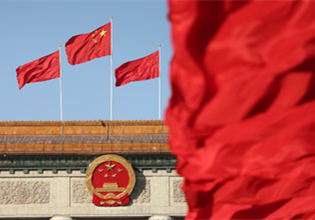Inner Mongolia releases policies to enhance its business environment
North China’s Inner Mongolia autonomous region recently held a meeting to solve the problems and shortcomings of its business environment.
The shortcomings of the autonomous region’s business environment strongly relate to market players, imaging and branding and constraints on reform and development.
Inner Mongolia will start to improve its business environment by cutting taxes and fees and improving government services.
From Jan 1, 2019, to Dec 31, 2021, Inner Mongolia will levy a 50-percent reduction on a range of taxes and charges, including property tax, urban land use tax, cultivated land occupation tax, resource tax (excluding water resource tax), stamp tax (excluding securities transaction stamp tax), urban maintenance and construction tax, the education surcharge and local education surcharge.
It is estimated that the inclusive tax reduction and exemption policy will benefit 1.38 million small and micro-sized enterprises in Inner Mongolia, with a total of 21.6 billion yuan in tax cuts and fees in three years.
From 2019 to 2021, Inner Mongolia will increase tax cuts within its jurisdiction and reduce corporate-related fees.
It is estimated that more than 1 million enterprises, individual industrial and commercial households and other market entities will enjoy the preferential tax and fee reduction policies, which will reduce the tax burden of enterprises by 7 billion yuan each year and reduce taxes and fees by 21 billion yuan over three years.
In terms of improving government services, Inner Mongolia will accelerate the construction of an integrated online government service platform and promote the standardization, intensive construction and interconnection of government service platforms for all leagues, cities and departments under its jurisdiction.
In 2020, Inner Mongolia deepened the reform of 20 fields related to starting a business, applying for building permits, obtaining electricity, water, gas and internet services, registering property and paying taxes.



 Print
Print Mail
Mail





